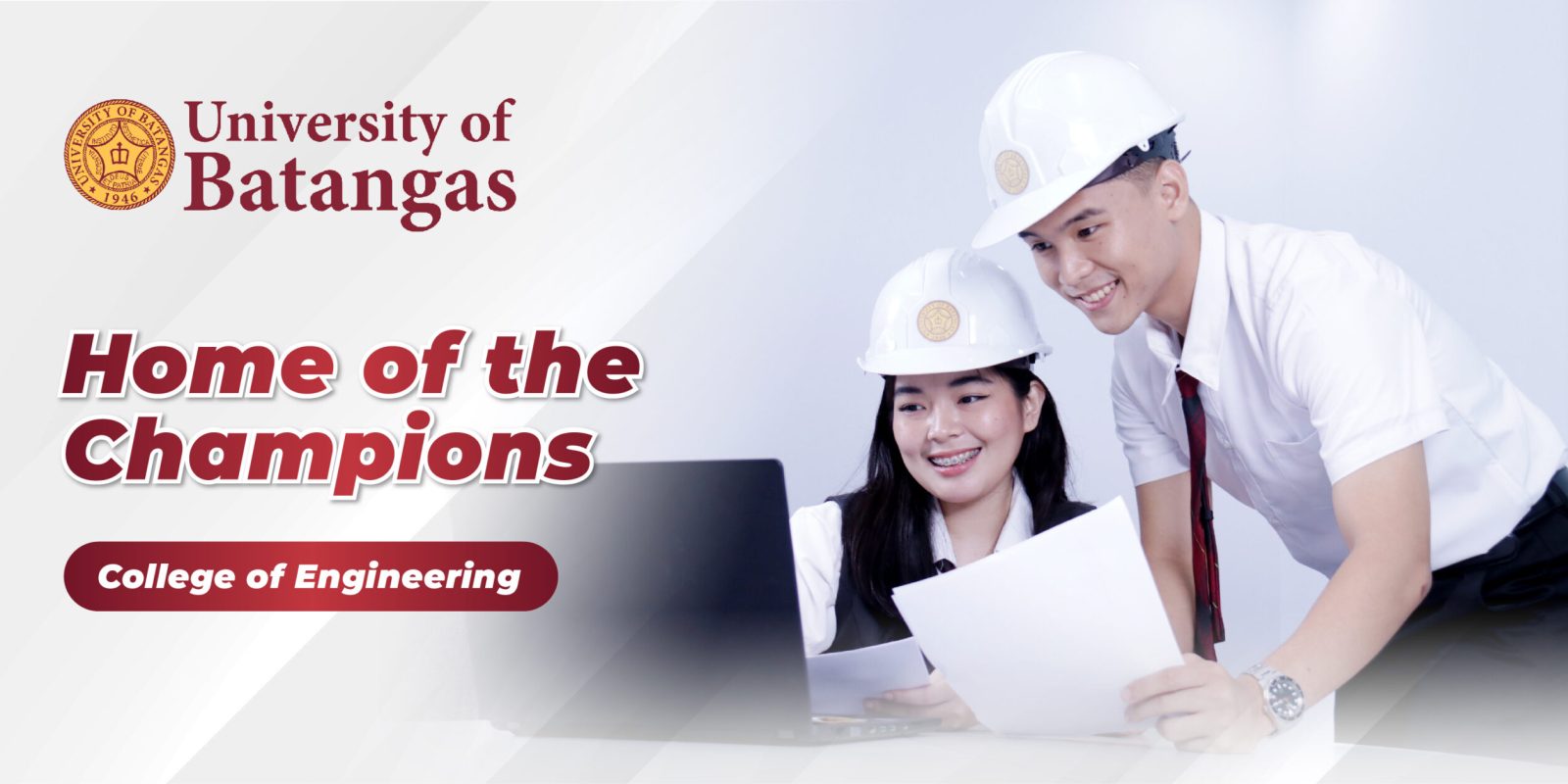Vision
The Department of Industrial Engineering aims to provide high quality education that will prepare their graduates to adapt to the rapid changes in their field and to become future leaders in the industry, business, and academe.
Mission
The Department of Industrial Engineering is committed to enrich the intellectual and moral values of students by providing them with sound industrial engineering education; to enhance the technical skills of the students through a practical approach and site visits; to engage in innovative research and to provide services to society by delivering outreach activities through its programs. The department continuously improves its performance in the creation, integration, and dissemination of information relevant to the design, implementation, operation analysis and improvement of industrial processes to better serve the industrial engineering profession and to uphold the reputation of the University of Batangas in providing excellent education.
Program Educational Objectives (PEO)
The goals of the Department will be achieved through the following objectives:
• Offer core industrial engineering knowledge and skills for industrial or different sectors of the organization
• Analyze and design optimized solutions to system of people, technology and information
• Assess and create enterprise value through innovative structured problem solving in order to make processes faster, more innovative, reliable and cost-efficient.
• Demonstrate acquisition of new knowledge and expertise through pursuing lifelong learning through advanced professional degrees, graduate studies in industrial engineering, professional training and engineering certification
Program Outcomes
Graduates of the BSIE program must have the following:
a. An ability to apply knowledge of mathematics, physical and information sciences, and engineering sciences to the practice of industrial engineering.
b. Ability to design and conduct experiments, as well as to analyze and interpret data
c. An ability to design, build, improve and install systems, or processes which are efficient, effective, as well as robust to meet desired needs within identified constraints.
d. An ability to work effectively in multidisciplinary and multicultural teams
e. Ability to identify, formulate and solve complex industrial engineering problems
f. Recognition of professional, social, and ethical responsibility.
g. An ability to effectively communicate orally and in writing using the English language.
h. An understanding of the effects of engineering solutions in a comprehensive context.
i. An ability to engage in life-long learning and an understanding of the need to keep current of the developments in the specific field of specialization.
j. An ability to use the techniques, skills, and engineering tools necessary for engineering and business practice
k. An ability to perform services in the form of analysis, design, preparation of plans, specifications, estimates, and implementation of work standards, statistical process control systems, production planning and materials control systems, manufacturing and service facilities, operations research models for production and operations, and/or information systems.
l. An ability to understand the engineering and management principles as a member and leader of a team, and to manage projects in a multi-disciplinary environment.
m. An ability to design, develop, implement and improve integrated systems that include people, materials, information, equipment and energy

